Originally, I was planning to write about “decolonizing”—our syllabi, our curriculum, our teaching. I had a title and everything. Thankfully, though, a colleague reminded me of Tuck and Yang’s important article “Decolonization is Not a Metaphor” (2012) and their argument that “decolonization brings about the repatriation of Indigenous land and life; it is not a metaphor for other things we want to do to improve our societies and schools.” In a related post entitled “Do Not ‘Decolonize’… If You Are Not Decolonizing: Progressive Language and Planning Beyond a Hollow Academic Rebranding,” Nayantara Sheoran Appleton writes of how “decolonizing has been co-opted from a vibrant and critical engagement to an academic buzzword” and how such hollow engagement is “sloppy and opportunistic.”
Ouch.
And . . . she was right.
I was planning to use “decolonization” in this more metaphorical sense, because it’s a popular term right now, but with no intention, as Tucker and Yang write, of mentioning “Indigenous peoples, our/their struggles for the recognition of our/their sovereignty, or the contributions of Indigenous intellectuals and activists to theories and frameworks of decolonization.” I’m thankful for this kind of “call in.”
Okay, so what was I actually trying to write about then? Fortunately, Appleton offers labels for other valuable pedagogical efforts we might be pursuing (all, delightfully, d-words too): “diversify your syllabus and curriculum; digress from the cannon; decentre knowledge and knowledge production; devalue hierarchies; disinvest from citational power structures; and diminish some voices and opinions in meetings, while magnifying others.” Aha. It turns out what I was trying to work on was diversifying.
In these efforts, I am guided by this “Inclusion by Design” tool, a worksheet for surveying your syllabus and course design, which was created by some of my very favorite colleagues (and which they’ve helpfully summarized in this Faculty Focus). Some questions from this self-evaluation tool that I use to critically examine my own teaching include:
- To what extent do some of the learning objectives aim at diversity- or inclusion-related knowledge, skills, or attitudes?
- To what extent do teaching activities meet the needs of diverse learners . . . ?
- To what extent do the course materials, such as readings, provide a full spectrum of perspectives on topics?
- To what extent does the course material represent a variety of voices?
- What unwritten messages does the syllabus convey about the course, content, and learning? Is there a “hidden curriculum” embedded in the syllabus?
I appreciate the wide range of considerations that the tool offers here, from learning outcomes to teaching activities to course materials to even what might be “hidden.” In our course materials, it’s far too easy to march a parade of white, “Western,” men in front of our students: Durkheim, Eliade, Frazer, James, Tylor, Girard, Marx, Freud, Weber, Geertz, Smart, Tweed, J.Z. Smith, Wilfred Cantwell Smith, Huston Smith, all the Smiths. How can I move beyond, or offer critiques of, this “canon,” to allow my students to consider other important contributions to (and omissions or silences from) the field? In my assignments, how do I privilege certain ways of knowing or representing that knowledge and how can I do differently? Do I inadvertently embody the characteristics of white supremacy culture, such as worship (no pun intended!) of the written word, in the way I organize class discussions, arrange our schedule, create my rubrics?
And, of course, questions about my particular syllabus or learning environment can’t help but lead me to reflect on our field, as a whole. It’s no secret that theology and religious studies have some Christian, colonial baggage. (I like assigning the first part of this Schilbrack article to students on this very point.) There are no easy answers for any of us here—and I don’t imagine that I’ll have this all sorted out in the next month, by the time the new academic year begins. What I am committed to is this kind of critical examination and the diversification—not yet the decolonization—of my own teaching. Will you join me?





